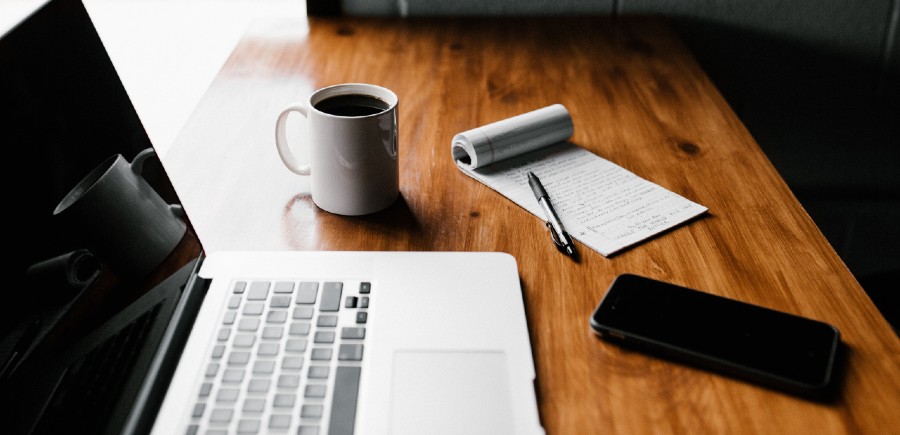featured
2023-05-04
Financial Literacy
published
Sometimes finding career opportunities and securing a position to generate a steady stream of income can be challenging. While each job has different requirements and entry barriers, there are a few basics you’ll need for almost any job you apply for:
- A résumé
- Interview Skills
- Follow-up
Résumé
Recruiters look at many résumés each day – make your résumé stand out!
- Spelling mistakes can land even the most experienced candidate’s résumé in the trash, so be sure to spell check!
- Have someone that you admire review your résumé before submitting it to the hiring manager. It may be easier for them to identify minor mistakes and make suggestions for improvement from their experiences.
Job History
- List your job history in chronological order with your most current role first so recruiters can find the most relevant information quickly.
- Include dates with your job history - your potential future employer wants to know how long you worked for each company.
Keep it Short and Sweet
- Use bullets instead of paragraphs about each role, making it easier for a recruiter to read quickly and pick out key terms.
Database Experience
- Include any database or software program experience (Excel, Outlook, etc.)
Education
- List all forms of education, even if you only took a few college classes.
- Also list any training you have completed or certifications you have received.
Cover Letter
Along with your résumé, you may also need to include a cover letter. For entry level positions this may not be necessary, but for upper level positions a cover letter should be included. The cover letter should be in the form of a professional letter and include a contact section, a greeting, an introduction, and a description of why you should be selected for the job. The cover letter is also a place where you can explain any lapse in job history or why you are moving to a new role. It should end with a closing and your signature. Keep in mind - you will need to tailor your cover letter to each job that you are applying for.
Interview Tips
If your résumé and cover letter have impressed the recruiter or hiring manager and he or she thinks that you may be a good fit for the position, you will often be asked to come in for an interview. This is your chance to show the best version of yourself, so make a good impression!
Interview Dress
We are fortunate that in today’s world, you can get professional clothes just about anywhere for reasonable prices, so take advantage of that and make sure you are dressed in a professional manner for your interview.
- Think of where you are applying to determine how to dress, but when in doubt – always overdress in terms of professionalism. Here are some examples: at a bank, dress professional (a suit, button down shirt or blouse, and a tie); at a retail store, wear a trendier outfit (while still following the guidelines below).
- Keep the length of your skirt or dress in mind, the hem should fall no higher than just above the knee.
- Your shoulders should be covered.
- Try your outfit on ahead of time to make sure everything fits correctly.
- Make sure your nails are clean, your hair color is not extreme, and you use minimal makeup and perfume.
Interview Prep
Before your interview do some research, practice, and come prepared.
- Research the company - find out what products and services they offer, how long they’ve been in business, etc.
- Practice interview questions - know your strengths and weaknesses and examples to support them.
- Write down questions you have about the company, so you are prepared to ask at least one question – it shows that you’re listening and that you care.
- Print out a few copies of your résumé and take them with you (one copy for your reference and extra copies for the interviewer(s) just in case).
- Look up the location of the interview. Make sure you arrive on time (or a few minutes early). If you are running late, call the interviewer and let them know.
During the Interview
When you first meet the interviewer(s), look her (or him) in the eye, introduce yourself, and shake her hand with a firm (but not too tight) grip. Tell her that you’re happy to be there and excited about the opportunity.
- Be engaged.
- Use your manners.
- Say please and thank you.
- Don’t interrupt.
- When you speak, look the interviewer in the eye.
- Keep eye contact while they are speaking also.
- Turn your cell phone off or better yet, don’t bring it into the interview with you.
- Don’t stress, try to relax.
- Give yourself time to think when you’re asked a question. It is ok for there to be silence for a short period of time while you gather your thoughts.
- Sell yourself, be confident.
- Don’t talk negatively about a previous employer.
- Don’t curse or swear.
- Don’t chew gum, have a mint, etc. – this is distracting to the interviewer and isn’t professional.
- Ask any questions you have – pay, benefits, duties & responsibilities, who you will report to, etc.
- Thank the interviewer for the opportunity!
Follow-up
Once the interview is over, it is important to follow up.
- Send a thank you note to the interviewer within 48 hours.
- A thank you email may be acceptable, but a handwritten note delivered to the business location is preferred.
- If you haven’t heard anything from the employer within a week, reach out to them to follow up.




